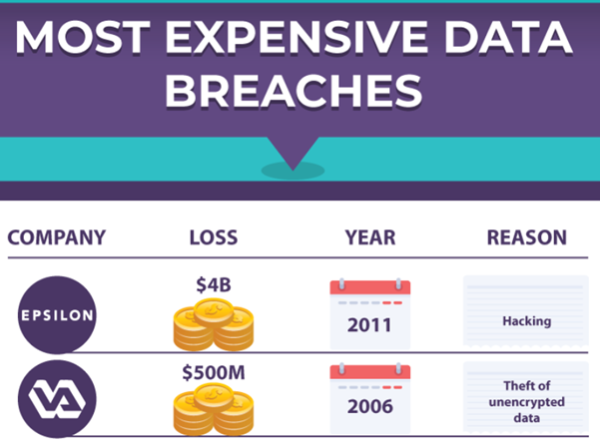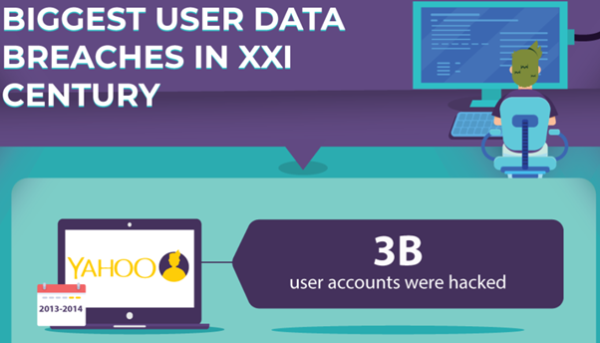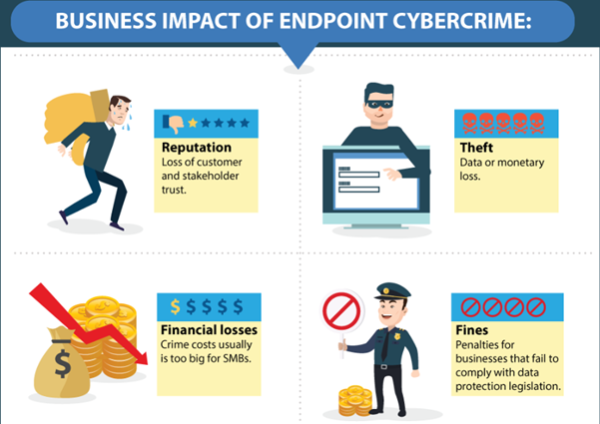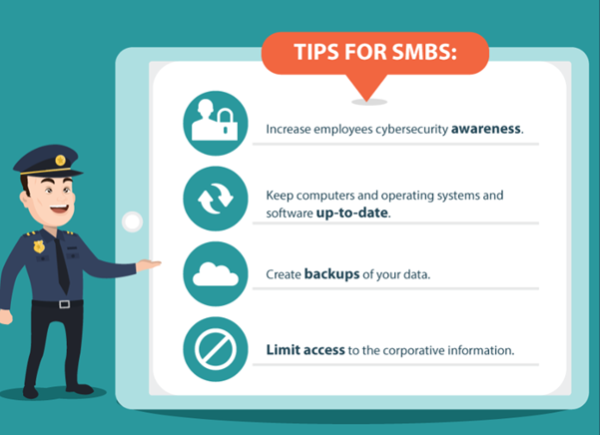
How much would you say is lost to cybercrime every year? According to the online security industry leader, EveryCloud, the figure is $445 billion in 2018. As you can see from the picture above, individual companies can lose vast sums of money, thanks to cybercrime.

Of course, hacks aren’t just measured in monetary terms. In fact, it might be more accurate to measure them in terms of how much user data was exposed as we don’t necessarily know what the extent of each hack is.
Hacks of large companies expose millions or billions of user’s data. The Yahoo hack in 2013-2014 was significant thanks to the vast number of users hacked. The Capital One hack discovered this year was not as spectacular but resulted in more than 106 million users seeing their data hacked.

You might think that your business is too small to be a juicy target. Statistically, though, that’s been proven untrue. 43% of all cybercrimes are aimed at small businesses. It makes sense. A smaller business can provide a softer target because:
● Owners and staff don’t believe that they are a valuable target
● Convenience may trump security
● They don’t have access to high-level, customized anti-hacking methods
● Staff may not undergo useful programs like security awareness training
Unfortunately, not taking data security seriously can be deadly for a small to medium business. Six out of ten small businesses won’t survive six months after a breach. Let’s go over why this may occur.

Reputation
Businesses have to admit the breach as fast as possible to their clients. This revelation is essential, or they run the risk of getting into serious trouble if someone from the outside works it out. The problem is that the company’s reputation will suffer.
Theft
The theft could be either money or data. The data loss can cause headaches for the business later because you never know what the hacker is going to do with the information.
Financial Losses
The fallout goes beyond monies lost during the breach. Companies will have to revamp their systems, shore up security, potentially try and recover the data, and so on. It’s a costly business that can work out expenses.
Fines
Most countries in the world will find companies if they’re found guilty of lax security measures. And, even if the company that you’re in doesn’t, you can’t breathe easy. If you have clients in Europe, you could face fines of up to €20 million thanks to the GDPR regulations.

Fortunately, it’s not all doom and gloom for small businesses. There are many steps that you can take to secure your business. Here are tips to start you off:
● Teach your staff about the potential risks and steps that they need to take to safeguard themselves.
● Make sure that you set your security program, drivers, and operating systems to check for updates regularly, automatically.
● Software testing of your systems should be conducted regularly. These tests will check that there are no gaps in security that a hacker could exploit. The average organization allocates a quarter of it’s IT budget for this function. It’s costly to run the tests manually, but cloud-based apps are making it more affordable. Cloud-based options were used by more than half of the companies conducting these tests in 2017.
● Always backup your data. Ideally, at the end of every day, someone should create a backup.
● Keep data access compartmentalized. Choose who has access to each section of the data very carefully. Your accounting department, for example, might not need access to all the personal details of your clients.
Final Notes
Overall, cybercrime is something that can be quite scary. On the upside, though, we’re not completely helpless. By following some simple tips, it’s easy enough to make your data more secure.
